Within the fitness industry, it seems that everyone is concerned about body composition, caloric, and macronutrient intake. In order to lose, gain, or maintain weight, it's important to track calories to see if you're moving in the right direction so you can make the right adjustments.
If your goal is fat loss, then you must consume fewer calories than you expend, which is the definition of a caloric deficit. Whereas, if your primary goal is to build muscle or gain weight, then it's important to consume more calories than you burn— a caloric surplus.
What makes up your calorie intake are macronutrients, protein, carbohydrates, and fats. Amounts are determined by your body weight and goals (plus, to an extent, your personal preferences). Once you have your calories and macronutrients nailed down according to your goal, what's the next thing you should consider to maximize your results, health, and performance? Micronutrients!
Although we always recommend eating a nutrient-dense diet that contains minimally processed foods, nobody's perfect. It can be difficult to consume the recommended daily allowance of vitamins and minerals. This is where supplements enter the picture! By definition, they're designed to supplement what's missing from your diet.
Kaged Multivitamin: A Premium Whole Food Vitamin and Mineral Blend
Almost everyone could benefit from taking a high-quality multivitamin. There are several multivitamins on the market, but not all are created equal. Multivitamins should be judged not just by how many vitamins and minerals they contain, but also, the quality of the vitamins and minerals. It's well known that certain types of vitamins and minerals are poorly absorbed by the body, which means your body excretes them rather than actually using them.
Kaged addresses this issue head-on with a multivitamin that contains over 21 vitamins and minerals derived from whole foods! Kaged Multivitamin is plant-based, keto-friendly, vegan-friendly, and Informed-Sport certified—a distinction indicating the product is third-party tested to ensure that it doesn't contain banned substances. Furthermore, Kaged added 100 milligrams of ACTIValoe, a prebiotic that promotes gut health.
Keep reading to learn more about Kaged Multivitamin and sign up for Kaged news and deal alerts below!
Kaged Multivitamin – Deals and Price Drop Alerts
Get Price Alerts
No spam, no scams.
Disclosure: PricePlow relies on pricing from stores with which we have a business relationship. We work hard to keep pricing current, but you may find a better offer.
Posts are sponsored in part by the retailers and/or brands listed on this page.
This area is reserved for Team PricePlow's upcoming videos.
Subscribe to our channel and sign up for notifications so you catch it when it goes live!
Kaged Multivitamin Ingredients
Kaged Multivitamin is loaded with over 21 vitamins and minerals, along with a trademarked prebiotic called ACTIValoe. Every bottle contains 60 veggie capsules. The recommended serving size is two capsules per day. You can take both capsules with a meal or split them up across two meals. As we mentioned before, Kaged is taking a unique approach to this product by using all whole food ingredients.
Here's what one serving (two capsules) of Kaged Multivitamin contains:
-
Vitamin C (as Ascorbic Acid) (from Broccoli) - 90mg (100% DV)
Vitamin C is an essential water-soluble vitamin. Kaged Multivitamin provides 100% of the recommended daily value of vitamin C as ascorbic acid derived from broccoli.
Vitamin C is known for the role it plays in the immune system. It's a potent antioxidant that helps scavenge damaging free radicals and serves as a cofactor for multiple regulatory and biosynthetic enzymes.[1] Vitamin C enhances epithelial barrier function, improves the actions of specialized cells in the immune system (such as neutrophils), and is needed to eliminate damaged cells.[1]
Furthermore, vitamin C has been shown to increase the proliferation and differentiation of lymphocytes, which are essential for strengthening the adaptive immune system.[1] It's well established that vitamin C deficiency leads to impaired immune function and can heighten your risk for illness.[1] Lastly, vitamin C is heavily involved in the synthesis of collagen, a structural protein that's essential for ensuring healthy connective tissues, bones, joints, and cartilage.[2]
-
Vitamin D (as Ergocalciferol) (from Maitake Mushrooms) - 19mcg (100% DV)
Unless you live near the equator, get adequate sunlight, and eat large amounts of dairy products, it's highly likely that you could use some extra vitamin D. Fortunately, Kaged Multivitamin provides 100% of the RDA of vitamin D per serving as ergocalciferol derived from maitake mushrooms.
Vitamin D is a fat-soluble vitamin that promotes bone health by enhancing the absorption of calcium and phosphorus.[3] There's evidence to suggest that getting adequate amounts of vitamin D may reduce the risk of cancer, fractures, heart disease, influenza, diabetes, autoimmune diseases, and depression.[3]
Vitamin D deficiency is a major problem in northern parts of the world where there's not a lot of sunlight, such as the US and Canada, especially in the late fall, winter, and early spring.[3] Furthermore, some people suffer from fat malabsorption issues, meaning that they can't properly uptake vitamin D.[3] Groups at a high risk of developing a deficiency are the elderly, people with limited sunlight exposure, people with dark skin, and people who are obese or have undergone gastric bypass surgery.[3]
Research has shown that vitamin D acts as a steroid hormone and affects multiple systems of the body, including skeletal, gastrointestinal, immune, cardiovascular, muscular, and even the brain.[3] Needless to say, vitamin D supplementation is key for proper health and performance.
-
Vitamin E (as total Tocopherol) (from Spinach) - 15mg (100% DV)
There are a total of eight forms of vitamin E. Kaged decided to use tocopherol derived from spinach. Vitamin E is a fat-soluble vitamin that expresses strong antioxidant, anti-inflammatory, immune-enhancing, and antiplatelet properties.[4]
Most notably, vitamin E is found in green leafy vegetables, nuts, seeds, and vegetable oils.[4] It's known for its ability to prevent reactive oxygen species production during fat oxidation.[4] Studies have found that vitamin E acts as the first line of defense against lipid peroxidation, which protects cells' membranes from free radical damage.[4]
In addition, vitamin E is capable of preventing platelet aggregation, which can lead to blood clots.[4] Adequate vitamin E intake may reduce the risk of developing a variety of health conditions, including cardiovascular, cancer, cataracts, Alzheimer's disease, human immunodeficiency virus, and acquired immunodeficiency syndrome.[4]
-
Vitamin K (as Phytonoclone) (from Kale) - 120mcg (100% DV)
Vitamin K is a fat-soluble vitamin that promotes protein functionality throughout the body, such as osteocalcin, coagulation factors, and matrix Gla protein.[5] Research has shown that vitamin K possesses anticancer and anti calcification properties. It also plays a role in bone formation and insulin sensitivity.[5]
There are two forms of vitamin K: vitamin K1 (phylloquinone) and vitamin K2 (menaquinone).[5] Vitamin K1 is found primarily in green leafy vegetables, olive oil, and soybean oil. Vitamin K2 is present in cheese, eggs, chicken, and butter.[5] As you can see from the label, Kaged contains vitamin K1 derived from kale to supply 100% of the recommended daily value.
Vitamin K has been shown to reduce the risk of osteoporosis, cancer, vascular calcifications, and improve insulin sensitivity.[5] Furthermore, warfarin, a medication used as a blood thinner, has been shown to directly inhibit vitamin K. Thus, patients taking this drug may be at a higher risk of vitamin K deficiency.[5]
-
Thiamine (from Sunflower) (seed) - 1.2mg (100% DV)
Thiamine, also known as vitamin B1, is a water-soluble vitamin that's primarily found in meat, seeds, nuts, beans, and whole grains.[6] Since the body cannot endogenously synthesize vitamin B, it's considered an essential nutrient.[6]
Thiamine takes on several different forms in the human body, including free thiamine, thiamine triphosphate, thiamine diphosphate, and thiamine monophosphate.[6] The form that is most metabolically active is thiamine diphosphate, also known as thiamine pyrophosphate, which serves as an important cofactor for a variety of enzyme complexes involved in energy metabolism.[6]
Thiamine deficiency is rare in healthy individuals, but can negatively affect both the cardiovascular system and the nervous system.[6] People at the highest risk of developing thiamine deficiency are those with diets that consist of primarily low-thiamine grains, such as rice.[6] That's something you won't have to worry about since Kaged Multivitamin provides 1.2 milligrams of thiamine derived from sunflower seeds, which is 100% of your daily value!
-
Riboflavin (from Spinach) (leaf) - 1.3mg (100% DV)
Vitamin B2, also known as riboflavin, is one of the eight water-soluble B vitamins that are most commonly found in green leafy vegetables, poultry, fish, dairy products, eggs, plus various fortified foods.[7]
Research shows that the risk of riboflavin deficiency is extremely low unless you have a rare genetic disease or malabsorption issues, such as Brown-Vialetto-Van Laere and Fazio-Londe syndromes.[7] However, riboflavin deficiency can negatively affect lipid metabolism and oxidant defense mechanisms.[7]
Riboflavin serves as a precursor to a number of flavoproteins that are involved in various physiological processes, including electron transport, cell signaling, protein synthesis folding, and the metabolism of lipids, xenobiotics, and drugs.[7] In addition, riboflavin plays a key role in the electron transport chain, which is a major component of adenosine triphosphate (ATP) production.[7]
-
Niacin (from Sunflower) (seed) - 16mg NE (100% DV)
Niacin, also known as vitamin B3, is another water-soluble vitamin that serves as a general descriptor for two vitamers: nicotinamide and nicotinic acid.[8]
Niacin is a precursor to several biologically active coenzymes, including nicotinamide adenine dinucleotide (NAD) and nicotinamide adenine dinucleotide phosphate (NADP).[8] These two coenzymes are heavily involved in energy production and contribute to various redox reactions.[8] Niacin is absorbed through the small intestine and converted into either NAD or NADP within the liver. Niacin can be obtained from both animal and plant sources, as well as endogenously-synthesized supplements.[8]
Niacin deficiency can lead to a disease called pellagra, which has three primary symptoms: diarrhea, dermatitis, and dementia.[8] Patients with anorexia, cancer, AIDS, malabsorptive disorders, or who are undergoing chemotherapy are at an increased risk for niacin deficiency.[8] Recent studies have shown that niacin plays an important role in the central nervous system since it affects multiple molecular mechanisms.[8]
-
Vitamin B6 (from Spinach) (leaf) - 1.7mg (100% DV)
Vitamin B6 is a water-soluble vitamin that is the generic name for six different vitamers, including pyridoxine, pyridoxal, pyridoxamine, and their 5'-phosphate esters.[9]
Vitamin B6 gets converted into multiple bioactive coenzymes, including pyridoxal 5' phosphate (PLP) and pyridoxamine 5' phosphate (PMP), which are involved in hundreds of reactions throughout the body.[9] However, both PLP and PMP heavily contribute to protein metabolism, whereas PLP is also involved in lipid and carbohydrate metabolism.[9]
Vitamin B6 aids in cognitive development by contributing to the synthesis of neurotransmitters and regulating levels of homocysteine, a non-proteinogenic amino acid that's present in the blood.[9] In addition, vitamin B6 plays a role in hemoglobin formation, immune system function, gluconeogenesis, and glycogenolysis.[9]
Those at an increased risk of developing vitamin B6 deficiency include individuals with renal impairment, autoimmune disorders, and alcohol dependence.[9] Vitamin B6 may reduce the risk of developing cardiovascular disease, cancer, and cognitive decline.[9]
-
Folic Acid (from Spinach) (leaf) - 400mcg DFE (100% DV)
Folic acid is classified as an essential nutrient for the role it plays in DNA replication and various enzymatic reactions that include amino acids and other vitamins.[10] You may have heard the term folate thrown around, however, it's not exactly the same as folic acid.
Folate is a generic name for a group of chemical compounds that have a similar structure to folic acid.[10] Dietary sources of folate include egg yolks, leafy green vegetables, citrus fruit, and legumes.[10] It's important to note that folate is one of the 13 essential vitamins since it cannot be synthesized endogenously by the body. Thus, it must be acquired through diet and/or supplementation.[10,11]
Both folate and folic acid must be metabolized in order to become metabolically active. I-5-Methyltetrahydrofolate (l-methylfolate) is the primary form of folate that's involved in multiple biological processes.[10] Folic acid is a synthetic form of folate that's only found in fortified foods or dietary supplements.[10]
Folate is used for the synthesis and repair of DNA, cellular division, maturation of red blood cells, and conversion of homocysteine to methionine.[11] Folate deficiency can lead to anemia, neural tube defects, cardiovascular disease, and cancer.[11]
-
Vitamin B12 (as Hydroxocobalmin) (from Chlorella) - 2.4mcg (100% DV)
Vitamin B12 is a water-soluble vitamin that exists in several different forms, but they're all collectively known as cobalamins since they contain the mineral cobalt.[12]
The two types of vitamin B12 that are actively present in human metabolism are 5-deoxyadenosylcobalamin and methylcobalamin.[12] Vitamin B12 is a cofactor for a variety of enzymes and involved in the conversion of homocysteine to methionine; it's essential for DNA synthesis, red blood cell formation, and neurological function.[12]
Those at the highest risk for developing vitamin B12 deficiency are the elderly and vegetarians, and vegans.[13] Vitamin B12 deficiency can lead to anemia, cognitive impairment, depression, neurological issues, and hyper-homocysteinemia.[13]
Furthermore, insufficient vitamin B12 intake puts you at greater risk for cardiovascular disease, cerebrovascular disease, cancer, and poor mental health.[13] Research shows that vitamin B12 and folate share complementary functions, thus it's best to take them together.[13]
-
Biotin (from Sunflower) (seed) - 30mcg (100% DV)
Biotin, also known as vitamin B7, is a water-soluble vitamin that's considered an essential cofactor for carboxylase enzymes that are used for various metabolic functions, including fatty acid synthesis, gluconeogenesis, and amino acid breakdown.[14]
Biotin has been touted for its ability to promote hair and nail growth, however, the research in this area is limited.[14] Biotin is heavily involved in protein synthesis, especially keratin production.[14]
Keratin is one of the main structural components of hair, skin, and nails, thus it makes sense that biotin helps promote hair and nail growth.[14] Biotin can be endogenously produced by healthy gut flora and is found in several foods, such as egg yolks, nuts, seeds, whole grains, and legumes.[14] As long as you're consuming a balanced diet, biotin deficiency is extremely rare.[14]
-
Pantothenic Acid (from Shiitake Mushroom) (from Sunflower) (seed) - 5mg (100% DV)
The final B vitamin that's included in the Kaged Multivitamin is vitamin B5, also known as pantothenic acid. It's derived from a combination of shiitake mushrooms and sunflower seeds. Pantothenic acid is a water-soluble vitamin that serves as a precursor to coenzyme A, after being converted first into 4'-phosphopantetheine.[15]
Studies have shown that pantothenic acid supplementation can reduce the appearance of acne lesions on the face.[15] It turns out that pantothenic acid helps regulate the function of the epidermal barrier and differentiation of keratinocytes through coenzyme A metabolism.[15]
Coenzyme A is also a crucial component of fatty acid and carbohydrate metabolism. Thus, it helps produce more adenosine triphosphate, the body's energy currency.[16] Although the pantothenic acid deficiency is rare, getting an adequate amount on a daily basis may help prevent the development of hyperlipidemia.[16]
-
Calcium (from Aquamin F) - 50mg (4% DV)
The first mineral in Kaged Multivitamin is calcium from Aquamin F. It's a natural source of calcium derived from calcareous marine algae.[17] Aquamin F is a superior source of calcium due to its high bioavailability, which means the body is able to better absorb and utilize it.[17]
As we mentioned in the vitamin D section, both calcium and vitamin D plays a critical role in bone health. It's well established that consuming adequate amounts of calcium on a daily basis can help prevent the risk of developing osteoporosis, which is the weakening of bones.[18]
Research shows that approximately 99% of calcium is stored in the skeletal system.[18] However, circulating calcium is involved in several key physiological functions, including regulation of hormones, vascular function, muscular contractions, and nerve impulse conduction.[18]
Two hormones that regulate calcium levels are calcitonin and parathyroid hormone. If calcium levels are low, the parathyroid hormone sends a signal to release calcium stored in bones.[18] Moreover, if you're not consuming enough calcium, your body still needs to get it from somewhere.[18] Calcium, in conjunction with vitamin D supplementation, is an effective way to support healthy bone mass density.[18]
-
Iron (from Spinach) (leaf & stem) - 18 mg (100% DV)
Iron is an essential mineral that's involved in a wide array of physiological processes, such as oxygen transportation, DNA synthesis, and electron transportation.[19] Iron is a crucial component of hemoglobin, a protein molecule that carries oxygen throughout the body to various tissues.[19]
Iron deficiency is the most common cause of anemia, a condition that's caused by a lack of red blood cells. It can lead to a significant decrease in oxygen delivery. Females are typically at a higher risk of developing iron deficiency and anemia because of their monthly menstrual cycle.[19] Even a mild iron deficiency can impair cognition, depress immune system function, and reduce work capacity.[19]
Within the body, iron binds to different proteins and exists in two different forms—as heme compounds or non-heme compounds.[19] Heme compounds include both hemoglobin and myoglobin. Non-heme compounds include ferritin, flavin-iron enzymes, and transferrin.[19] Beyond helping create hemoglobin, iron is also used by various enzymes involved in electron transport and oxidation-reduction reactions.[19] The mineral can also be recycled and retained by the body if needed for later use.[19]
-
Iodine (from Kelp) (blades) - 150mcg (100% DV)
Iodine is a trace mineral that's required for the production of thyroid hormones. It's most commonly found in fortified foods, such as iodized salt, but it can be sourced naturally from seafood.[20] Kaged uses kelp to deliver 150 micrograms of iodine, which covers 100% of your daily value.
Some studies have found that approximately two billion individuals around the world are deficient in iodine, which puts them at risk for health problems, including thyroid dysfunction.[21] The thyroid gland secretes hormones, that affect growth and development, like thyroxine (T4) and triiodothyronine (T3).[22]
The thyroid is regulated by thyroid-stimulating hormones (TSH) that are secreted by the pituitary gland.[22] Once TSH is released, the thyroid gland increases iodine absorption and uses it to synthesize T3 and T4.[22] When someone is iodine deficient, TSH levels can stay chronically elevated, leading to an enlarged thyroid gland.[22] Thus, consuming an appropriate amount of iodine each day is recommended to avoid thyroid problems.
-
Magnesium (from Aquamin Mg) - 88mg (21% DV)
Aquamin Mg is a highly bioavailable form of magnesium that's naturally produced from seawater off the Irish coast. Not only is Aquamin Mg a high-quality source of magnesium, but it also contains over 70 additional trace minerals.[23] Magnesium is classified as an essential mineral due to its involvement in a wide range of biological activities.[23]
Magnesium is primarily found in whole grains, nuts, fish, seeds, green leafy vegetables, and beans. However, thanks to food processing, there's a 15-20% prevalence of magnesium deficiency.[23] Insufficient intake of magnesium can lead to a condition known as hypomagnesemia, which has been linked to diabetes, cardiovascular disease, and osteoporosis.[23]
Symptoms of hypomagnesemia include nausea, vomiting, decreased appetite, fatigue, and weakness. In extreme cases, it can enhance neuromuscular excitability, characterized by seizures, muscular cramps, tremors, and tetany.[23]
Studies have shown that Aquamin Mg is much more bioavailable than other forms of magnesium, such as magnesium oxide. Meaning that your body is better equipped to absorb and utilize the mineral.[23]
-
Zinc (from Pumpkin) (fruit & seed) - 11mg (100% DV)
Zinc is an essential mineral that's involved in a number of bodily functions, such as DNA synthesis, protein synthesis, cell division, growth, and development, wound healing, and immune system function.[24] Since the body has no mechanism for storing zinc, it's important to consume enough on a daily basis.[24]
Inadequate zinc intake can negatively affect multiple human systems, including epidermal, reproductive, immune, skeletal, nervous, and gastrointestinal. Zinc deficiency has been linked to impaired growth and development, increased risk for infection, decreased immunity, skin issues, delayed wound healing, and cognitive impairment.[25]
It's important to note that several zinc absorption inhibitors exist, such as phytic acid (present in seeds, grains, and legumes).[25] Therefore, even if you think you're getting enough zinc through your diet, it's possible your body is not absorbing enough to fulfill the daily requirement.[25] Those at the highest risk for zinc deficiency include young children, adolescents, pregnant and lactating women, and the elderly.[25]
-
Selenium (from Shiitake Mushroom) (from Sunflower) (seed) - 55mcg (100% DV)
Selenium is classified as an essential trace mineral due to its involvement in the formation of selenoproteins (any protein that includes a selenocysteine amino acid residue).
Currently, there are a total of 25 selenoprotein genes that have been identified in the human body.[26] One group, in particular, glutathione peroxidases, helps fight off free radicals by functioning as an antioxidant defense system.[26]
Selenium deficiency can increase your risk of cancer and could lead to the development of serious diseases.[26] The majority of naturally-occurring and synthetic forms of selenium have been shown to be highly bioavailable.[26] Plants must create selenium through sulfur metabolism, whereas animals consume inorganic selenium and produce selenoproteins.[26]
Selenium is most commonly found in shiitake mushrooms, nuts, seeds, green vegetables, seafood, beef, and poultry.[26] Inadequate intakes of selenium have been associated with inflammatory diseases like cancer, depressed immune function, and diabetes.[26]
-
Copper (from Kale) - 0.9mg (100% DV)
Copper is an essential mineral that's crucial for proper iron metabolism, muscle growth, cardiovascular health, lung elasticity, neovascularization, and neuroendocrine function.[27] In addition, copper is required for enzymes that are involved in aerobic metabolism, including ceruloplasmin, cytochrome c oxidase, lysyl oxidase, and dopamine monooxygenase.[27]
By serving as a cofactor for the enzyme apo-copper-zinc superoxide dismutase, copper protects healthy cells from free-radical damage induced by reactive oxygen species.[27] Although copper deficiency is rare, it's been associated with a multitude of health issues, such as anemia, mental disorders, neutropenia, decreased immune function, impaired central nervous system function, connective tissue weakness, and hypothermia.[27]
Studies have shown that only 50% of the copper that's supplied by nutrition is absorbed in the small intestine,[27] thus supplementing is often necessary to ensure you fulfill your daily requirement.
-
Manganese (from Pumpkin) (fruit & seed) - 2.3mg (100% DV)
Manganese is an essential trace mineral, meaning that the body only needs it in small quantities. Manganese is heavily involved in carbohydrate, protein, and lipid metabolism.[28]
It also serves as a cofactor for various enzymes, such as arginase, manganese superoxide dismutase, and pyruvate carboxylase.[28] Thus, manganese plays an important role in scavenging reactive oxygen species, immune function, bone formation, blood clotting, hemostasis, and reproduction.[28]
Once manganese enters circulation through the small intestine, the majority of it becomes bound to protein molecules, such as albumin, transferrin, and plasma alpha-2 macroglobulin.[28] Anywhere from 10 to 20% of manganese is stored in the skeletal system, with the rest housed in the brain, liver, kidneys, and pancreas.[28]
An inadequate intake of manganese has been associated with poor bone health and diabetes.[28] However, it's important to note that excessive levels of manganese can be toxic,[28] which is why Kaged sticks to the recommended daily value.
-
Chromium (from Broccoli) - 35mcg (100% DV)
Chromium is an essential mineral that plays a vital role in the regulation of insulin, as well as lipid, carbohydrate, and protein metabolism.[29,30] Studies show that chromium is an important element for stimulating insulin activity and that people with type 2 diabetes have expressed lower plasma levels of chromium than healthy individuals.[29,30]
Type 2 diabetes is characterized by poor insulin sensitivity.[29,30] More than 34 million Americans suffer from this metabolic syndrome, thus supplementing with chromium is often recommended.[29,30] Studies have shown that chromium supplementation helps boost insulin activity and may lead to decreased risk factors for cardiovascular disease, especially in obese and overweight individuals.[29,30]
It's important to note that dietary chromium has poor bioavailability and as you age chromium levels tend to decrease.[29] So while supplementation is important for certain individuals, all of us could benefit from consuming adequate amounts of chromium on a daily basis.
-
Molybdenum (from Pumpkin) (fruit & seed) - 45 mcg (100% DV)
Molybdenum is an essential trace mineral that serves as a cofactor for a variety of enzymes in the human body, including xanthine oxidase, aldehyde oxidase, and sulfite oxidase.[31,32] This group of enzymes is primarily responsible for metabolizing heterocyclic compounds (pyrimidines and purines), sulfur-containing amino acids, drugs, and toxins.[31,32]
Molybdenum is readily absorbed in the intestines and is stored in the liver, bone, kidneys, and adrenal glands as molybdopterin.[31,32] Furthermore, the kidneys are primarily responsible for regulating of molybdenum levels and control its excretion.[31,32]
Molybdenum deficiency is extremely rare in healthy individuals; it's only seen in those with genetic mutations that inhibit the synthesis of molybdopterin.[31,32] Foods that contain a high concentration of molybdenum are legumes, milk, liver, whole grains, and green leafy vegetables.[32]
-
ACTIValoe - 100mg
The last ingredient in Kaged Multivitamin is not a vitamin or mineral, it's a trademarked prebiotic from Aloecorp. ACTIValoe is a high-quality form of aloe vera that exceeds purity and content standards set by the International Aloe Science Council's Certification Program.[33] By using a patented manufacturing process, Aloecorp can retain all of the beneficial properties of the aloe vera plant and standardize it to contain at least 10% polysaccharides.[33]
Historically, aloe vera has been used to treat constipation, skin diseases, infections, hypertension, diabetes, and fungal diseases.[34] Today, it's widely used by the food, cosmetic, and pharmaceutical industries. Nearly 75 bioactive constituents have been identified in the aloe vera plant, such as enzymes, saccharides, amino acids, lignin, vitamins, minerals, saponins, anthraquinones, and salicylic acids.[34]
Although aloe vera is commonly used for topical purposes, when taken orally, it may help treat gastrointestinal disorders, diabetes, metastatic cancer, and constipation.[34] Studies have found that aloe vera expresses numerous beneficial properties, including anti-inflammatory, antimicrobial, lipid and glucose-lowering, immunostimulatory, antioxidant, and antiproliferative.[34]
In addition, preliminary research has found that the polysaccharides contained in aloe vera may promote overall gut health by serving as a prebiotic. Prebiotics help feed good bacteria in the gut and create more.[35] It's not common to see a prebiotic in a multivitamin, but Kaged decided to go against the grain on this one!
Kaged: The Perfect Balance Between Health and Performance
Micronutrients don't get the spotlight nearly as much as they deserve. As you can see, each vitamin and mineral plays an essential role in numerous physiological processes. Without them, your performance and health can suffer.
Although you can obtain a majority of these vitamins and minerals from your diet, various factors influence your ability to absorb them, which can lead to a deficiency. Furthermore, you have to be very careful to ensure that your diet contains a wide range of foods in order to get adequate amounts of each micronutrient.
Let's be honest, there are going to be days when your diet isn't that great That's why taking a multivitamin is important. Think of a multivitamin as a type of insurance policy. It's there to ensure you're covered no matter what your diet looks like from day-to-day. Kaged did a phenomenal job formulating a multivitamin that is whole-food based. They've added a beneficial prebiotic at the end to support overall gut health.
Kaged is always focused on finding a perfect balance between health and performance. Adding the Kaged Multivitamin to their sports-performance-dominated line is a step in the right direction. If you're looking to see how much of a difference a well-formulated multivitamin can be, pick up Kaged Multivitamin!
As always, subscribe below for more Kaged deals, news, reviews, and interviews.
Kaged Multivitamin – Deals and Price Drop Alerts
Get Price Alerts
No spam, no scams.
Disclosure: PricePlow relies on pricing from stores with which we have a business relationship. We work hard to keep pricing current, but you may find a better offer.
Posts are sponsored in part by the retailers and/or brands listed on this page.
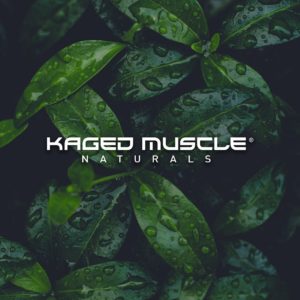
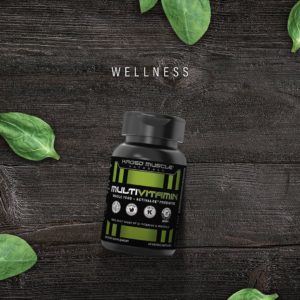
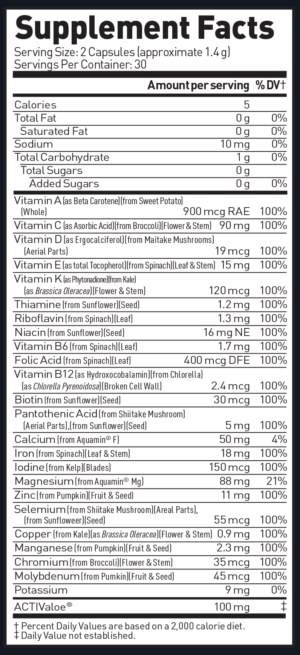
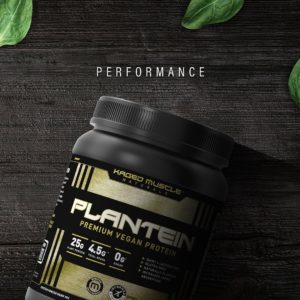
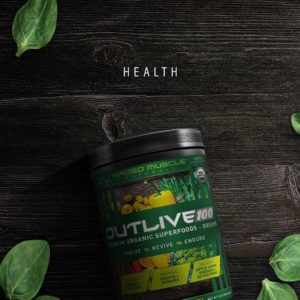
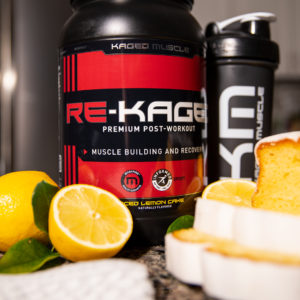
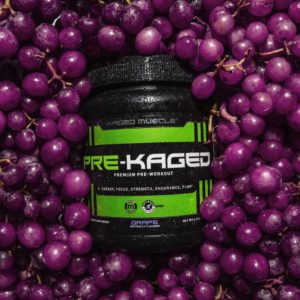
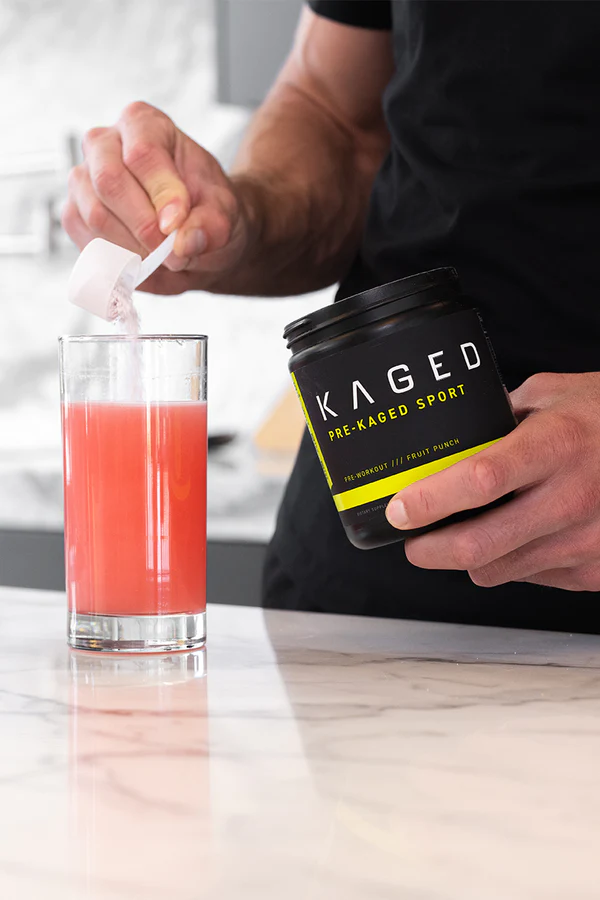


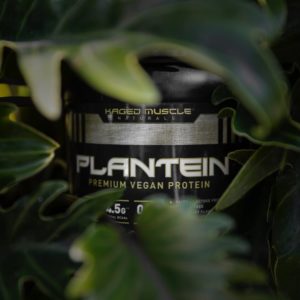
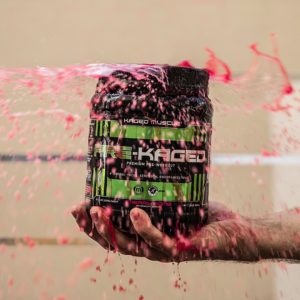







Comments and Discussion (Powered by the PricePlow Forum)